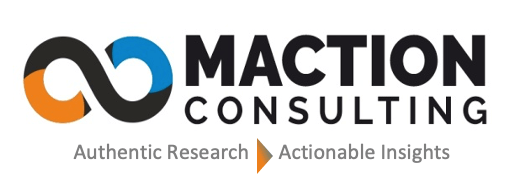Social listening is the process of monitoring online conversations to gain insights into public opinion, customer sentiment, and industry trends. It is a powerful tool that can help businesses make data-driven decisions and improve their marketing strategies.
In this blog post, we will discuss how social listening can be used to turn social media noise into actionable insights. We will also share two case studies that demonstrate the power of social listening in practice.
How Social Listening Works
Social listening tools monitor social media platforms, blogs, forums, and other online channels for mentions of specific keywords or brands. This data is then analyzed to identify trends, sentiment, and other insights.
There are a number of different social listening tools available, each with its own unique features and capabilities. Some of the most popular tools include:
- Hootsuite
- Sprout Social
- Brandwatch
- Talkwalker
- Crimson Hexagon
The Benefits of Social Listening
There are many benefits to using social listening. Here are just a few:
- Gain insights into public opinion: Social listening can help you understand what people are saying about your brand, products, and industry. This information can be used to make informed decisions about your marketing and product development strategies.
- Identify trends: Social listening can help you identify emerging trends in your industry. This information can be used to stay ahead of the competition and develop new products and services.
- Monitor customer sentiment: Social listening can help you track customer sentiment towards your brand and products. This information can be used to improve customer satisfaction and loyalty.
- Identify influencers: Social listening can help you identify influencers in your industry. This information can be used to build relationships with influencers and reach a wider audience.
- Improve crisis management: Social listening can help you monitor for potential crises and respond quickly to them.
Case Study 1: Tide’s #TidePodChallenge Response
In early 2018, a viral challenge on social media involving eating Tide Pods gained popularity. This challenge was dangerous and posed a serious health risk. Tide quickly responded to the challenge by using social listening to track mentions of #TidePodChallenge and other related terms. Tide then used its social media channels to spread awareness about the dangers of the challenge and to encourage people to keep Tide Pods out of reach of children.
Tide’s response to the #TidePodChallenge was a success. The company was able to quickly contain the damage and protect its brand reputation.
Case Study 2: Oreo’s Eclipse Marketing
During the 2017 solar eclipse, Oreo tweeted an image of its cookie with the caption “You don’t need a filter.” The tweet went viral, and Oreo received a lot of positive attention.
Oreo’s tweet was a great example of how social listening can be used to capitalize on trending events. By monitoring social media for mentions of the eclipse, Oreo was able to quickly come up with a creative and relevant tweet.
Conclusion
Social listening is a powerful tool that can help businesses turn social media noise into actionable insights. By using social listening, businesses can gain insights into public opinion, identify trends, monitor customer sentiment, identify influencers, and improve crisis management.
If you are not already using social listening, I encourage you to give it a try. It could be a game-changer for your business.
In addition to the benefits mentioned in the blog post, social listening can also help businesses:
- Improve customer service: By monitoring social media for customer complaints and questions, businesses can respond quickly and effectively.
- Generate new product ideas: By analyzing social media conversations, businesses can identify unmet customer needs and develop new products or services to address them.
- Measure the effectiveness of marketing campaigns: Social listening can be used to track the reach and engagement of marketing campaigns. This information can be used to improve the effectiveness of future campaigns.


